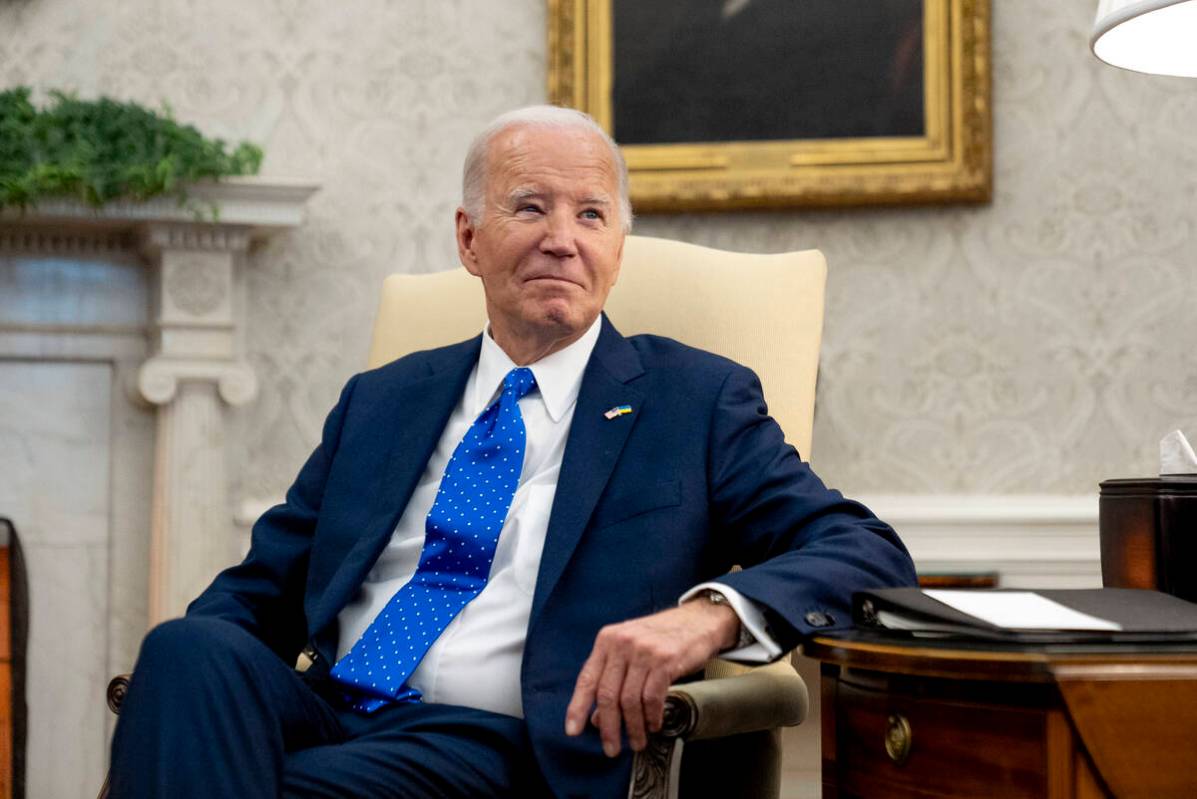COMMENTARY: Should Biden follow LBJ’s example?

Nearly 56 years ago, President Lyndon Johnson, in a nationally televised address, shocked the country with a straightforward 20-word declaration: “I shall not seek and I will not accept the nomination of my party for another term as your president.”
Elected in a landslide — 61 to 38 percent, 486 electoral votes and 44 states carried — Johnson’s administration was ravaged by the war in Vietnam, a conflict that tore the country apart along economic, age, racial and gender lines.
There is now growing sentiment for President Joe Biden to follow the difficult and painful journey endured by LBJ and end his quest for a second term.
He is not confronted daily by the horrors of a bloody, deeply unpopular war. Instead, he faces broad public disapproval of his job performance and in dealing with inflation, massive immigration and foreign policy.
He has now been challenged to the core by the devastating portrayal of him as an individual in cognitive decline, beset by his faulty memory and — by implication — unable to serve effectively for another four years as president.
The critique by special prosecutor Robert Hur as part of his investigation of the president’s handling of classified material after his vice presidential term ended stunned the administration and the Biden campaign and intensified scrutiny of his age and general health.
The political fallout was swift. Critics argued the special counsel’s findings were convincing evidence the president should end his candidacy, while Biden’s supporters attacked the counsel’s commentary as inaccurate and highly improper. Some suggested he had done the bidding of former President Donald Trump.
While denouncing the report, the president, in a contentious and ill-advised news conference, vilified the media coverage, insisted his memory and recall were fine and that he was fully capable of discharging his responsibilities.
His defense was immediately undercut when he erroneously referred to the president of Egypt as the president of Mexico.
His allies rushed to his defense, relating stories of their meetings and encounters with the president in which he was sharp, engaged and incisive.
Academics, legal and constitutional scholars, medical professionals and the usual flock of political observers all weighed in. The president dismissed the criticism, rejected all calls for him to step aside and vowed to stay in the race.
The campaign team and the White House had been at odds over the most effective strategy — keeping the president in a controlled environment to minimize the potential for a major misstep, or undertake a more rigorous schedule of public appearances and events to demonstrate a vigorous and in-control president.
Delaying that decision is no longer an option. The special counsel’s report has thrust it on the president’s advisers and consultants.
One faction offers a compelling case for a “vote for me because I’m not him” tactic, relentlessly attacking Trump as a threat to democracy and tapping into what they believe is a widespread fear of his presidency that will ultimately lead to support for Biden.
The competing point of view holds that a full on anti-Trump strategy will go only so far and risks becoming a stale and unconvincing message.
The president, they argue, must avoid appearing that he’s hiding. He is most effective when delivering his message of progress and achievement in person, interacting with crowds and even the media while displaying the stamina and vigor to contrast with his depiction as old and out of touch.
Mistakes, forgetfulness and incidents of confusing names and places can be dealt with by attentive and rapid response staff and quickly dismissed.
Biden seems determined to carry on, and absent a significant health issue or cognitive lapse will not undergo an epiphany or change of heart.
He will disregard Lyndon Johnson’s choice of more than a half century ago and accept the risks inherent in person-to-person campaigning.
Come November, one faction or the other will proclaim “I told you so!”
Carl Golden is a senior contributing analyst with the William J. Hughes Center for Public Policy at Stockton University in New Jersey. Contact him at cgolden1937@gmail.